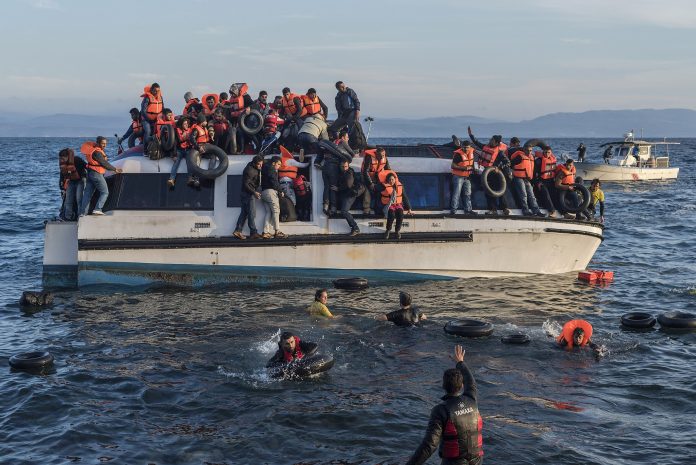Asylum-seekers should be able to request humanitarian visas at EU embassies and consulates abroad, allowing them to access Europe safely, say Civil Liberties MEPs.
With 37 votes to 10 and 3 abstentions, the Civil Liberties Committee agreed on Monday to ask the European Commission to table, by 31 March 2019, a legislative proposal establishing a European Humanitarian Visa. Holders would be allowed into Europe – only to the member state issuing the visa – for the sole purpose of submitting an application for international protection.
MEPs stress that the EU lacks a harmonised framework of protected entry procedures for people seeking international protection and point out that, due to insufficient legal options, an estimated 90% of those granted refugee status or subsidiary protection reached the European Union through irregular means.
Cut the death toll, combat smuggling and make better use of financial resources
According to the committee, humanitarian visas would help to address the intolerable death toll in the Mediterranean and on the migration routes to the EU (at least 30 000 persons have died at EU borders since 2000), to combat human smuggling, and to manage arrivals, reception and processing of asylum claims better.
This tool should also contribute to optimising member states’ and the EU’s budget for asylum, law enforcement procedures, border control, surveillance and search and rescue activities, MEPs say.
They stress, however, that the decision to issue European humanitarian visas should remain a responsibility solely of the member states.
Security screening before issuing the visa
Beneficiaries will have to prove well-founded exposure to or risk of persecution and not be in a resettlement process already. The assessment of the application should not involve a full status determination process, but before issuing the visa, each applicant should be subject to a security screening, through the relevant national and European databases, “to ensure that they do not pose a security risk”.
Juan Fernando López Aguilar (S&D, ES) , rapporteur for the proposal, underlined that “after more than four years of very tough negotiations, we have before us a new and possibly last opportunity to approve European Humanitarian Visas. We need to do more to help people in need, as there are currently clearly not enough legal and safe pathways to the EU for those seeking international protection.”
Plenary voted in November in Strasbourg on a proposal on humanitarian visas but, due to some confusion during the vote, several MEPs withdrew their voting cards too soon, leading to their votes not being counted. The Conference of Presidents (formed by the EP President and the leaders of the political groups) decided to ask the Civil Liberties Committee to table a new resolution on the same topic.
This legislative initiative will be put to a vote by the full House in the December plenary session. If adopted by plenary by qualified majority, the Commission will have to give a reasoned reply to Parliament’s request.

